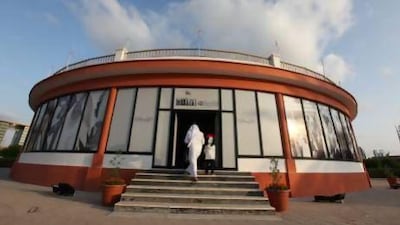DUBAI // Union House will be restored to its former glory, and every detail of "the birthplace of the UAE" will be returned to the way it looked at the time of the declaration of the Federation.
Ordered by Sheikh Mohammed bin Rashid, Vice President and Ruler of Dubai, the renovation will see the historic spot transformed back in time to December 2, 1971.
Union House was where the declaration was signed to bring into effect a temporary constitution and establish the independent state of the United Arab Emirates.
"The moments the flag of the UAE was hoisted for the first time in this house are the moments that filled us with the feelings of pride, independence and unity, too," said Sheikh Mohammed, according to the state news agency Wam.
"It was the beginning of a blessed journey, a journey of making and development on the land of the UAE.
"It is our duty toward the children of our motherland to perpetuate those great moments, and we remind them all that modest beginnings can lead to great endings if accompanied by loyalty to the homeland, determination and resolve."
Union House was built in 1965 and was nearly demolished in the 1990s during a boom in construction.
It is at the west end of December 2 Street, near the sea.
In 1971, the Rulers of Abu Dhabi, Dubai, Sharjah, Ajman, Umm Al Quwain and Fujairah met inside the house and sat at a round, leather-panelled, French-made Renaissance table. Long, velvet floral curtains hung from the windows.
After the signing, the meeting continued as a Supreme Council of Federation.
It elected the late Sheikh Zayed, Ruler of Abu Dhabi, as President of the UAE for five years, and the late Sheikh Rashid, Ruler of Dubai, as Vice President for the same period.
"This house represents a historical legacy of the UAE and an important milestone for future generations," Sheikh Mohammed said.
"To preserve it means to maintain the historic moments, to perpetuate the national memories and document the experience of an Arab unity."
newsdesk@thenational.ae
@ For more on UAE HERITAGE, visit thenational.ae/topics

